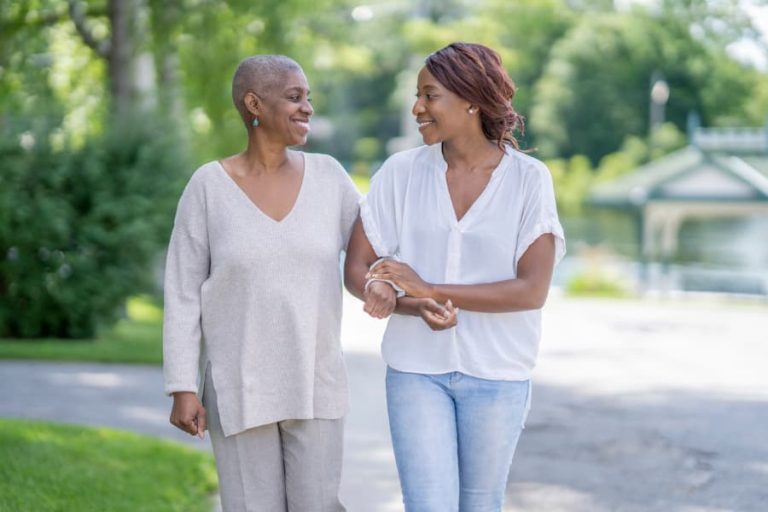Supporting a Loved One With Cancer in NJ, CT, MA, and the Washington, D.C., Area
There is no standard response to receiving a diagnosis of cancer. However, most people with cancer benefit from the support of their loved ones. Family, friends, and neighbors often serve as caregivers. The levels and types of support vary according to the needs of the patient, the skills and talents required, and the individual situations of everyone involved. The compassionate doctors and clinical staff of Regional Cancer Care Associates (RCCA) offer the following insights and caregiver resources for those in New Jersey, Connecticut, Massachusetts, and the Washington, D.C., area who are supporting loved ones in their fight against cancer.
How to Provide Support for People with Cancer
Caregivers will benefit from examining their own feelings and other responses to the cancer diagnosis. This self-awareness is an important first step to providing meaningful assistance to the patient. While all feelings are valid, if caregivers are unaware of their own anxieties or other emotions, they may unknowingly send mixed messages during caregiving interactions. Regional Cancer Care Associates suggests caregivers keep the following in mind:
STAY EDUCATED ABOUT THE CONDITION
Every cancer is different, as is every patient. Start by finding out more about the specific cancer diagnosis and how it may affect your loved one. For example, what are the main symptoms of the cancer, and what is the plan for treatment? What are the logistics involved in accessing treatment, and how can the caregiver help? Understanding how cancer might affect the patient’s energy level, or whether a loved one may experience pain related to the cancer or side effects related to its treatment, helps caregivers provide more effective support.
Self-education, whether by reading, asking medical professionals, accessing caregiver resources, or talking with family members, also may take some of the burden of explanation off the person with cancer by enabling the caregiver – with the patient’s permission – to address questions that family or friends may ask.
PRACTICE SELF-CARE
This is one of the most important aspects of caregiving. If they become exhausted, emotionally overwrought, or anxious, caregivers will experience burnout. When caregivers are depleted emotionally, they cannot give what patients truly need. They are less able to pay attention and may miss important signs or symptoms. This lack of awareness can even be medically dangerous at times, but the most important point is that it runs contrary to the overall goal of the caregiver, which is to help the patient and ease his or her daily challenges.
All caregivers want their loved one with cancer to be as healthy and rested as possible, and to access the emotional and medical resources they need for their recovery. Self-care on the part of the caregiver is an important element in reaching this goal.
RESPECT THE PATIENT’S PRIVACY
This may seem counterintuitive when it comes to caregiving, but all patients need privacy. They do not always want to talk about their feelings or even share information about their physical condition. Everyone has a right to privacy concerning their medical information.
As caregivers assist their loved ones, they may be able to tell when the patient is upset or hurting, and if he or she wants to talk or does not. It may not be possible to make the right call every time, but with compassion and good intentions, caregivers usually can improve the situation for the patient.

WORK WITH THE HEALTHCARE TEAM, IF APPROPRIATE
If a caregiver has the patient’s permission to interact with the physicians, nurses, physician’s assistants, and others on the healthcare team, he or she may provide those clinicians with helpful information on any symptoms the patient may be experiencing on other updates on the patient’s status.
Regional Cancer Care Associates offers online patient caregiver education to assist those with navigating their new role.
How to Talk About Cancer
It is not always easy to know what to say when a friend or family member is diagnosed with cancer. However, listening to the patient express his or her feelings during this time is always beneficial. If caregivers are not sure what to say or how to react, they can share this with their loved one. Being honest with the patient is a way of conveying love and concern.
How to Provide Practical Assistance
Caregiver Resources at Regional Cancer Care Associates
The medical professionals at Regional Cancer Care Associates are experienced in treating cancers and benign blood disorders. They offer caregiver resources for patients in New Jersey, Connecticut, Massachusetts, and the Washington, D.C., area. For more information on cancer treatments, contact Regional Cancer Care Associates or visit one of RCCA’s 20+ community-based, convenient locations for consultations and second opinions.